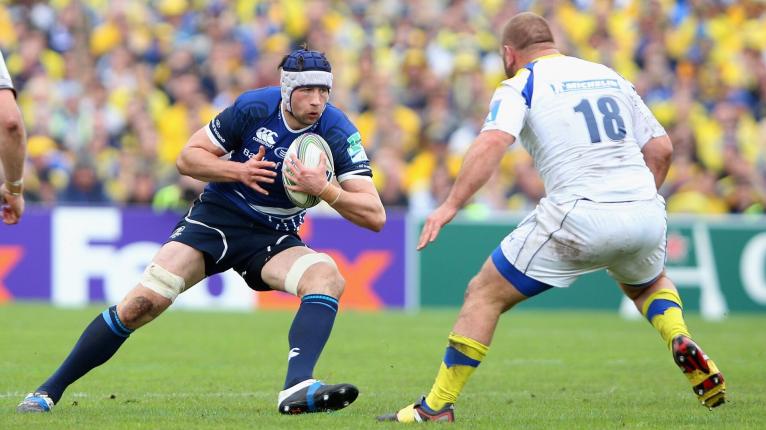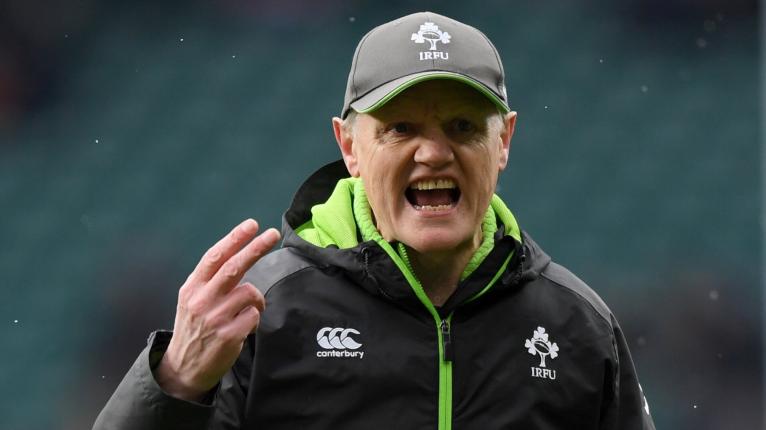'If we're trying to attract people to rugby, surely providing stats that we know are impactful is the way forward'

Six Nations 2019 is on course to fail to break the one million attendance mark for the fourth season in succession – the crowd of only 60,000 at the France-Wales opener, down 18,688 on the same Paris fixture in 2017, is firm evidence.
However, French people voting with their feet and staying away from a stadium can’t disguise how Test rugby is enjoying northern spring bounce just now.
An 8.2 million peak audience watched Ireland-England on British terrestrial TV along with a 1.45 million peak viewing on an Irish channel. Those are giddy numbers for rugby in a year culminating with the fascinating World Cup in Japan.
The trick will be to keep floating viewers fully tuned in. Rugby will never be as easily understood as football, which revelled in a 26.5 million peak UK TV audience watching England’s World Cup semi-final last July against Croatia. But it’s currently not helping itself to be better understood.
I’m told 8.2 million people tuned in for Ireland V England. 8.2 million reasons to keep the Six Nations on terrestrial TV.
— Nick Mullins (@andNickMullins) February 4, 2019
There is some hugely subjective punditry. Look at how Wales were criticised at half-time for training too much indoors at Vale of Glamorgan and struggling with the Parisian rain. This watery assertion was washed away with a successful second-half comeback.
More pressingly, the sport is seemingly drowning in an avalanche of statistics often lacking sufficient context. Numbers are no longer limited to obvious categories such as penalties conceded and lineouts won and lost. Now you can access a seven-page, jargon-filled post-mortem for every Six Nations match.
Its detail is exhausting. Numbers on everything from hit-up efficiency, to dominant tackles, to ruck speed 0-3 seconds, to a player’s ruck arrival on both sides of the ball. On and on it goes. Fair enough if you have a forensic interest in rugby, but what about simplifying this for the fan who only sporadically tunes in for the big games and can’t quite make sense of it all?
Kevin McLaughlin suggests Kitman Labs might have the solution. The former Ireland back row is now vice-president of the Dublin-founded sports science and analytics company that is contracted by a whole host of teams.
Their roster includes Joe Schmidt’s Ireland, the four Irish provinces, five Premiership clubs including heavy-hitters Saracens, all South Africa’s national sides and the Lions, Sharks and Cheetahs, Conor O’Shea’s Italy and their two PRO14 teams, and the New Zealand Hurricanes.
They are also in talks with some tournaments to provide an insightful stream of statistics to better help the fans. “We’ve been approached by a couple of elite tournaments across the rugby world and one big league body in football,” he reveals. “What they are interested in is what we do with teams, identifying what teams need to do on the pitch from a statistical standpoint to give them the best chance of winning.

“TV companies are trying to push out as much statistics as they can to engage consumers more, but they have hit a bit of a wall somewhat. They are pushing out a million and one statistics without knowing which is the most important one.
“What we’re doing is running a way more simple version than we do for teams to allow these leagues understand what the key performance indicators are for their league, stack-ranking the teams, stack-ranking each individual in the teams, stack-ranking the positions, setting up a top trumps leaderboard for different players.
“We’re working to improve the content for a big European rugby league at the moment on that… we’d like to think (it will happen) for the start of next season. A couple of league we are talking to want to make it happen. They are just figuring out commercial arrangements with us now.”
Offering insight is the ambition of Kitman, the business founded in 2012 by some employees at Leinster, the province who were the first rugby team in the northern hemisphere to use GPS on players in 2006.

“Pushing statistics out is interesting in itself,” continues McLaughlin, who retired from playing following concussion in September 2015. “So if I made 10 tackles and you made eight carries and maybe down to some level of details like in Champions League football, this guy ran nine kilometres, those statistics are interesting to a point but my philosophy would be, so what?
“Just because someone made nine or 10 tackles, what does that actually mean? How has that influenced performance? How has that influenced a team’s ability to win or lose? For me that is what is interesting. If we’re trying to attract more and more people to the game of rugby, surely providing impact statistics to tell interesting stories that are not obvious to the untrained eye is the way forward?
“If we know how strong, fast and agile the best wingers in the competition need to be able to run at whatever it is, nine-and-a-half metres a second, we can use analytics to determine how this couples with the technical actions in games that will influence a team’s chance of winning.

“If we have statistics of how fast they run in a game and also know that the best wingers need to be able to cover a certain amount of distance and catch a certain amount of balls to give their team the best chance of winning in that specific tournament, now that is fascinating.
“Then you’re looking at a league table of the four wingers who have played in a game and who have influenced the team that won or not. Right now you have got so many subjective opinions. There was a lot of opinions going around that Robbie Henshaw was out of position all day the other week, that he had a big impact on Ireland not winning but who actually knows? That is hugely subjective.
Very excited for this year's event! https://t.co/Ic2Mbnq0Mw
— Kevin McLaughlin (@KMcLaughlin6) January 25, 2019
“Outside of Joe Schmidt, Andy Farrell and Eddie Jones who spend four or five days with huge expertise analysing every last moment of a game 10 times, it’s really, really hard for punters to know what matters and what doesn’t.
“My philosophy would be there needs to be a statistical approach to try and understand what matters and what doesn’t, and in order to do that you need to take an understanding of what the key performance indicators of the game are.
“Scoring points at the end of the day is really what the consumers care about, so what are the actions that influence a team’s ability to score points and what are the actions that lead to a team conceding points? For me, as a consumer now, that is what is fascinating.
“I know now that my back row, my No6, needs to make on average five impact tackles in a game to give my team an 80 per cent chance of winning or higher. Now that is something that would be really interesting to me as a consumer.
“I think anyone can associate with that and now suddenly everyone cares about that metric because they know it’s important. But right now everyone is going England made lots of impact tackles against Ireland, but did it matter? Probably, but I don’t actually know.
“Data and statistics can be problematic as well as useful and a lot of what we are doing at Kitman is ensuring the data is used to improve decision making, improve athlete welfare, improve athlete performance because a lot of teams today are drowning in data and are not exactly sure how to use it to make better decisions. As a result it’s not delivering any value for them.
“A million and one statistics can be collected and if you’re making decisions on all of them, you’re going to end up chasing your tail. Try and focus on the most important statistic at any given time, that is what we are trying to deliver to teams.”

McLaughlin has travelled extensively in recent years meeting a variety of coaches across a variety of sports, but Schmidt, whom he worked under for three years at Leinster and one with Ireland, remains his stand-out example of someone who can instinctively separate the wheat from the chaff.
“I don’t see why rugby can’t be the leader in terms of statistics for consumers. It’s an incredible technical, tactical game and there are really, really clear actions in games that either lead to a team’s chance winning or losing.
“What makes Joe Schmidt so good is he has that tactical, statistical understanding probably better than anybody I have ever met just naturally. He understands what those winning actions are and he coaches them extremely well.
“That didn’t come across against England. There are blips on the road, but statistics are becoming more and more interesting and more and more important as the margins between the top teams become smaller and smaller.”
“Joe has an incredible ability to see opportunities where other people don’t see opportunities. Between him and Johnny (Sexton), and some of the leaders in the team, they have a pretty incredible ability to expose weakness and Joe has been doing it as a coach the last 10 years. Every team that comes into a game says Joe is going to have some play to try and expose weakness.
“Now it doesn’t always work. Sometimes Ireland just need to grind it out and Joe has a nice mix between coming up with opportunities and exposing teams’ weaknesses versus just really good, clean statistically-driven rugby. He will know that offloading in your own half generally doesn’t lead to good outcomes.
“Offloading is allowed but only when there is a very high chance that there is a high quality offload. And keeping possession for a certain amount of phases is way more likely to lead to a penalty… all those different elements are more likely to lead to a win.
“Joe has got an innate understanding of what it takes for his team to win games. He then works with the leaders on that and comes up with a really strong philosophy on the type of rugby the Irish team should be playing. That is what gives Ireland an incredible chance going into the World Cup.”























































